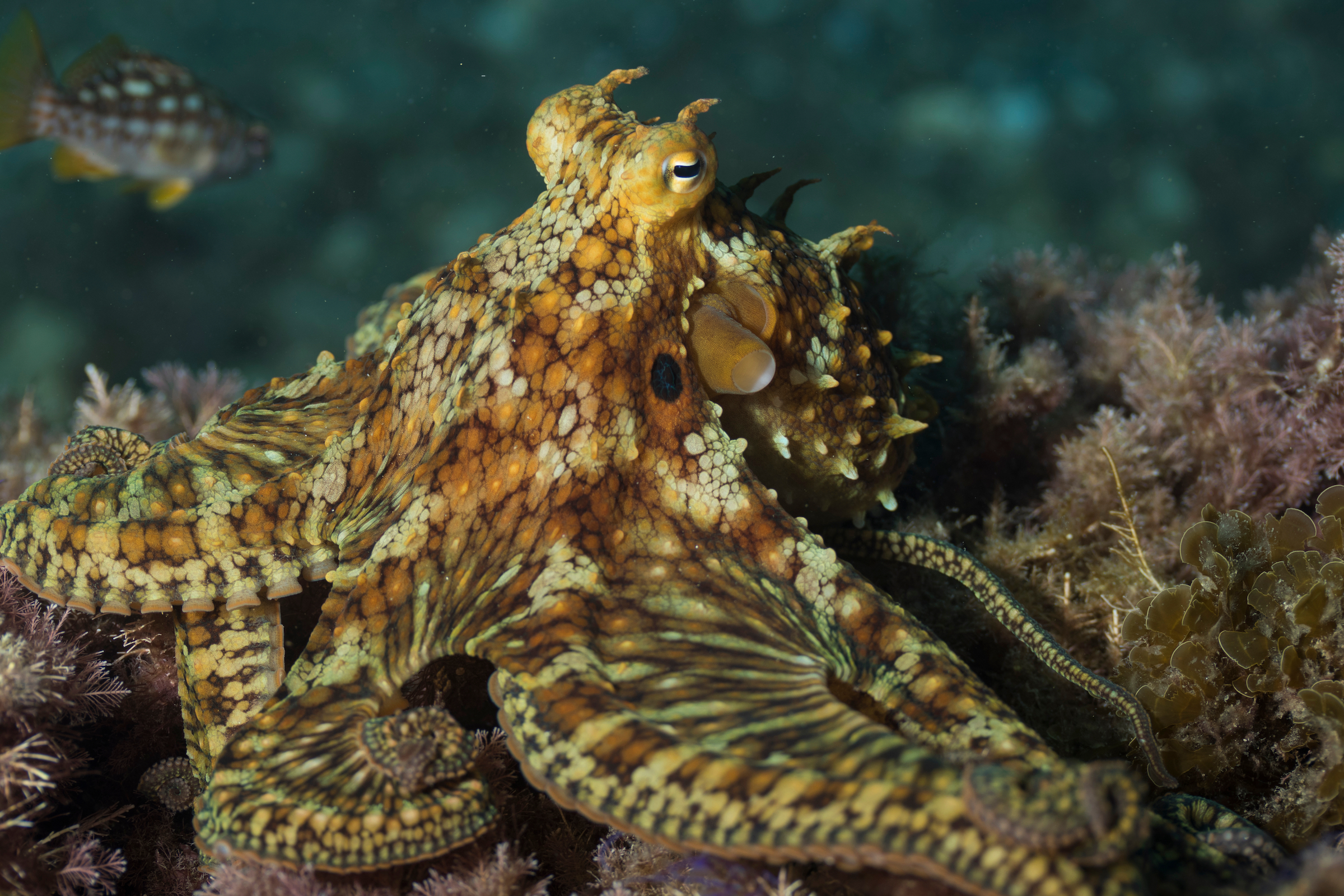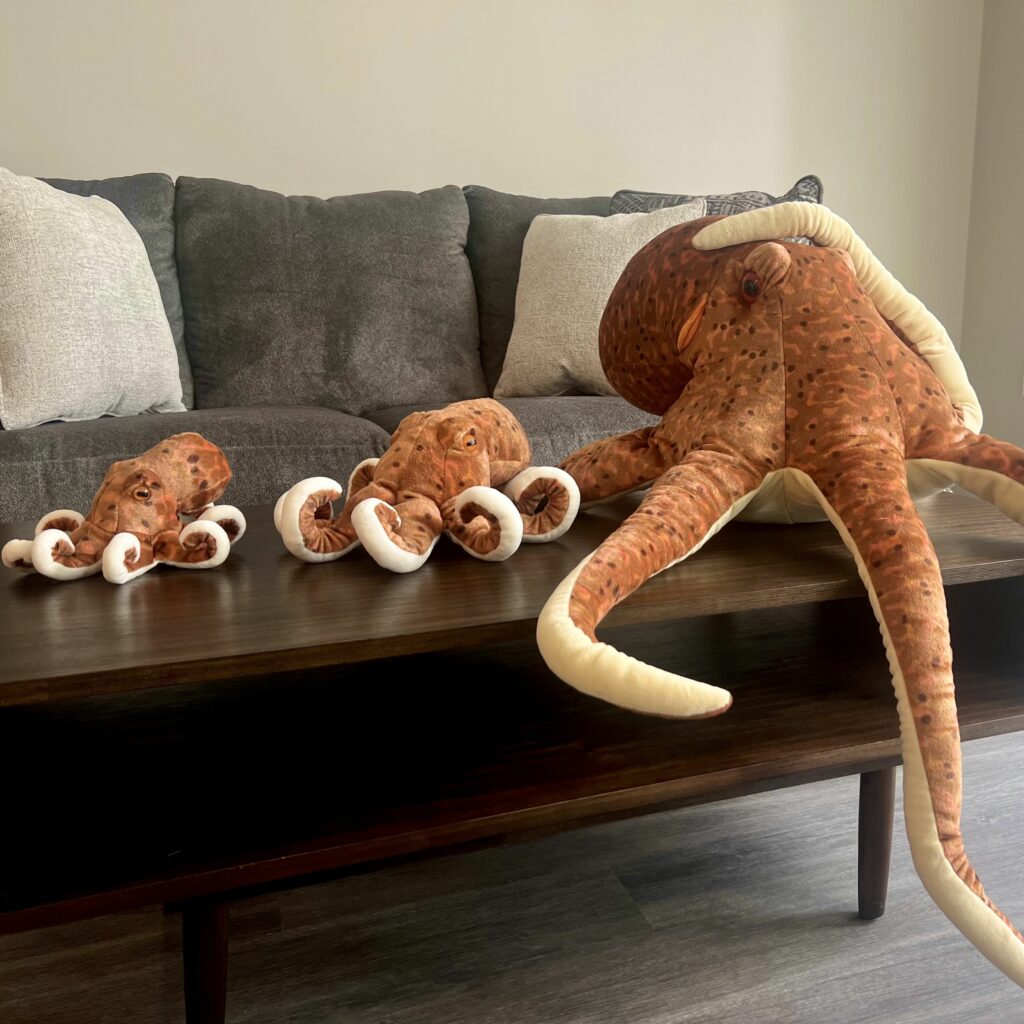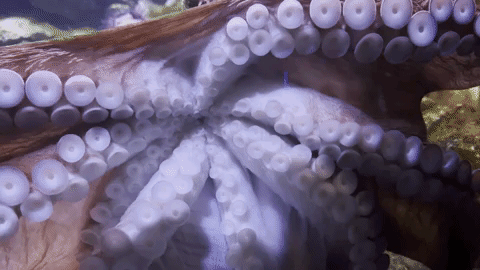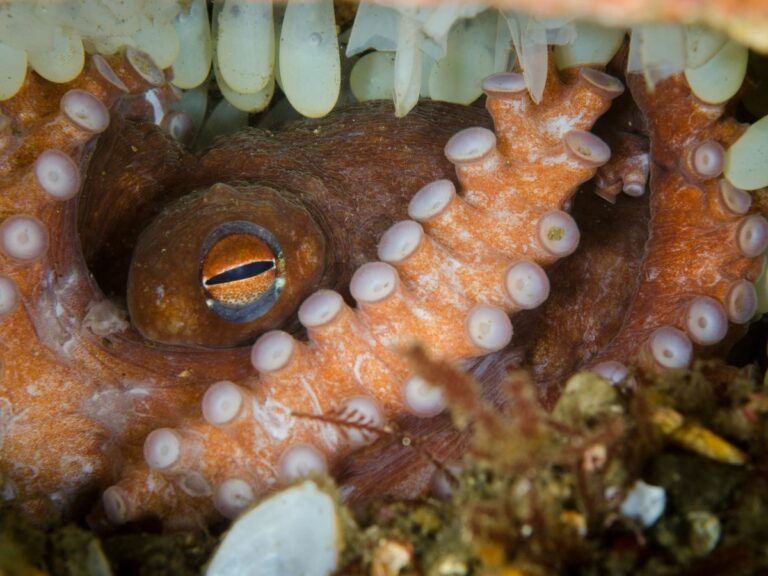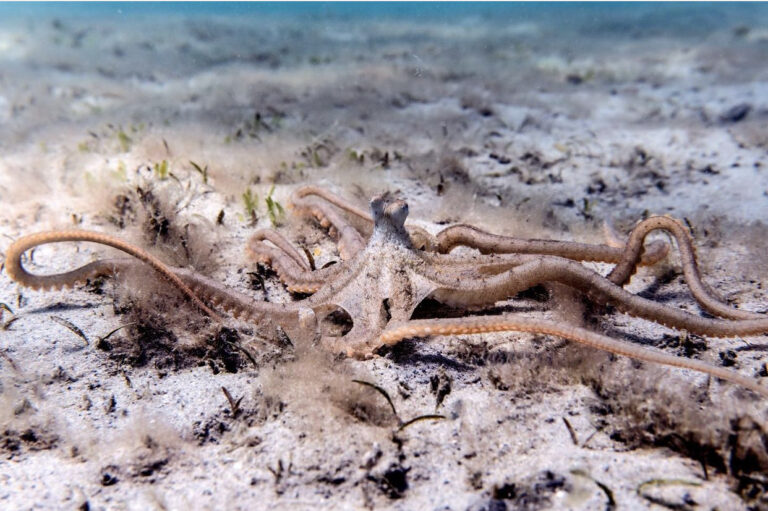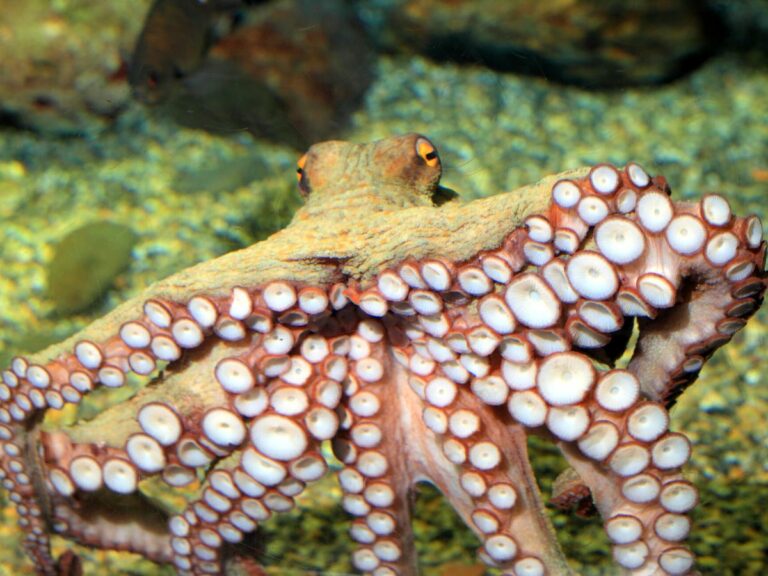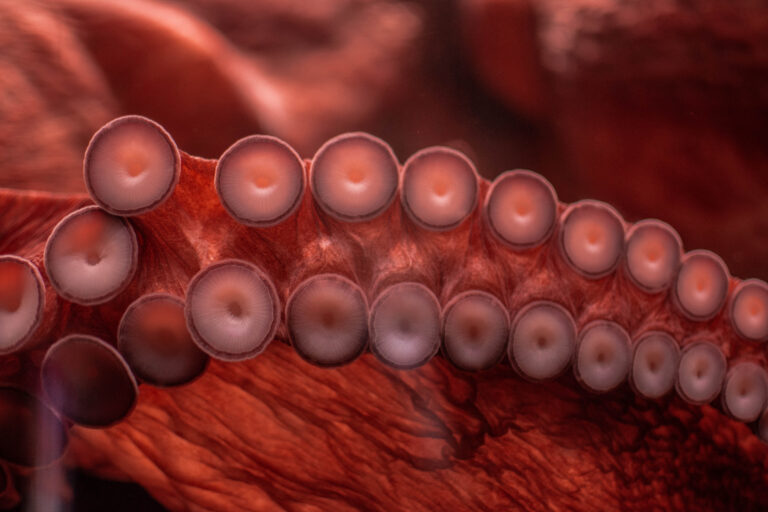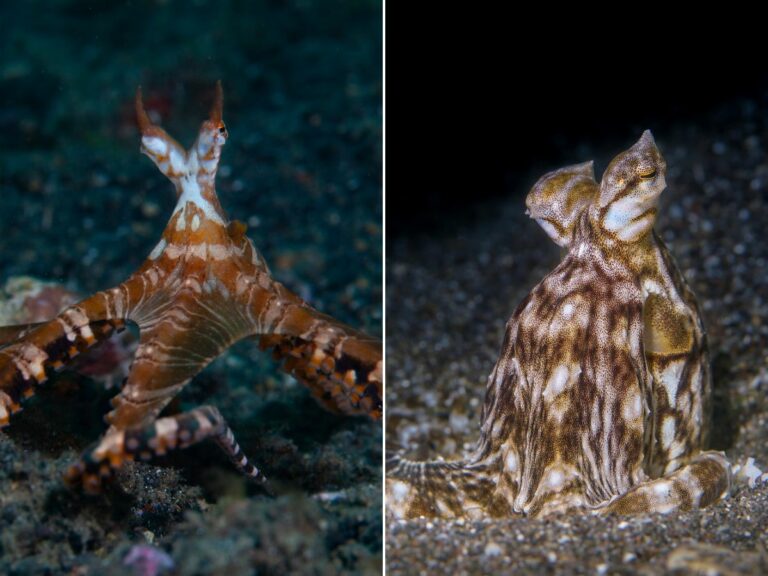Do Octopus Bite?
Octopuses of myth and legend come off as monsters, but real-life octopuses are far from monstrous! Generally, octopuses aren’t interested in hurting humans unless humans are hurting them. And even though the answer to this question is yes, octopuses could bite you, you’ll soon learn that they usually won’t (unless you’re their prey, of course!) 🦀 🐠 🦐
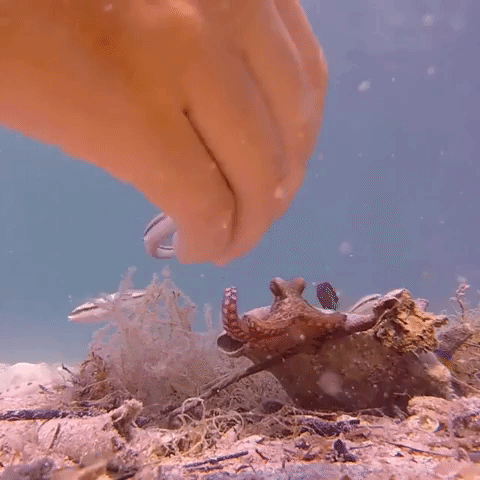
Octopus stick to the menu!
Octopuses have sharp, black beaks they use to crack the shells of their prey. Besides fish, octopuses also eat crabs, shrimps, snails, clams, and mussels. To eat a diet like this, an octopus needs a strong bite!
If you’re one of the aforementioned animals that are on an octopus’s menu, you should definitely be concerned about being bitten by an octopus. If you’re a human, you are not on the menu, and you shouldn’t be too concerned about being bitten by an octopus. Octopuses have many ways to defend themselves from unwanted attention from humans. They can camouflage themselves or hide so they’re not seen in the first place, they can jet away by squirting water out of their siphons, they can release an ink cloud and escape, or they can squeeze into a tiny place beyond a diver’s reach.
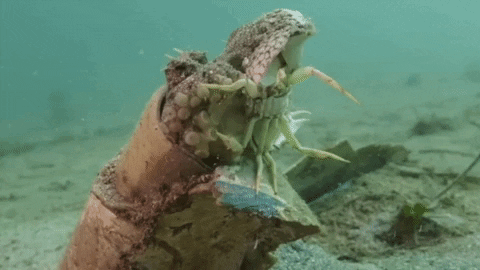
🐙 Octopus Fun Fact
Since octopuses don’t have skeletons, their beaks are the only bone-like part of their bodies, which means that fossils of ancient octopuses consist mostly of … you guessed it, beaks! Scientists look at the size of fossilized cephalopod beaks to try to discern how large these extinct creatures were.
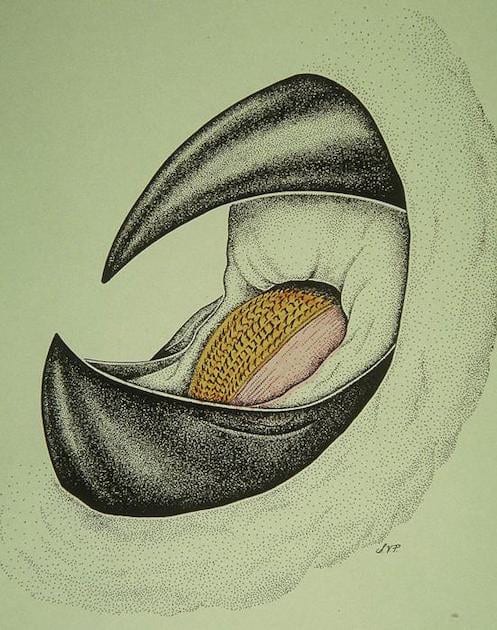
When do octopus bite?
As a last resort, if an octopus feels threatened and a part of a human’s body is close enough to the underside of an octopus’s body, it might bite. Usually, the fault is on the human for getting too close! Octopuses are wild animals with a strong instinct to survive. Don’t put yourself or an octopus in this precarious position.
Octopuses are very curious, and occasionally, an octopus in an aquarium or in the wild will nip a human with its beak, even if it’s not really being threatened. Thankfully, most of the time, an octopus bite isn’t too serious.
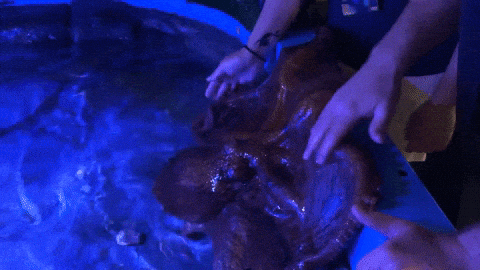
Sometimes an octopus bite can be serious…
We’re going to contradict ourselves immediately by adding that sometimes an octopus bite IS really serious. Blue-Ringed Octopuses are extremely dangerous, thanks to their powerful neurotoxin that can take down even something as large as a human. There are actually four species of Blue-Ringed Octopus—each highly venomous.
In reality, all octopus bites have the potential to be dangerous, because octopuses are venomous animals, and their bites contain toxins that can irritate or complicate a bite wound. The chance of an infection or allergic reaction is also always a risk.
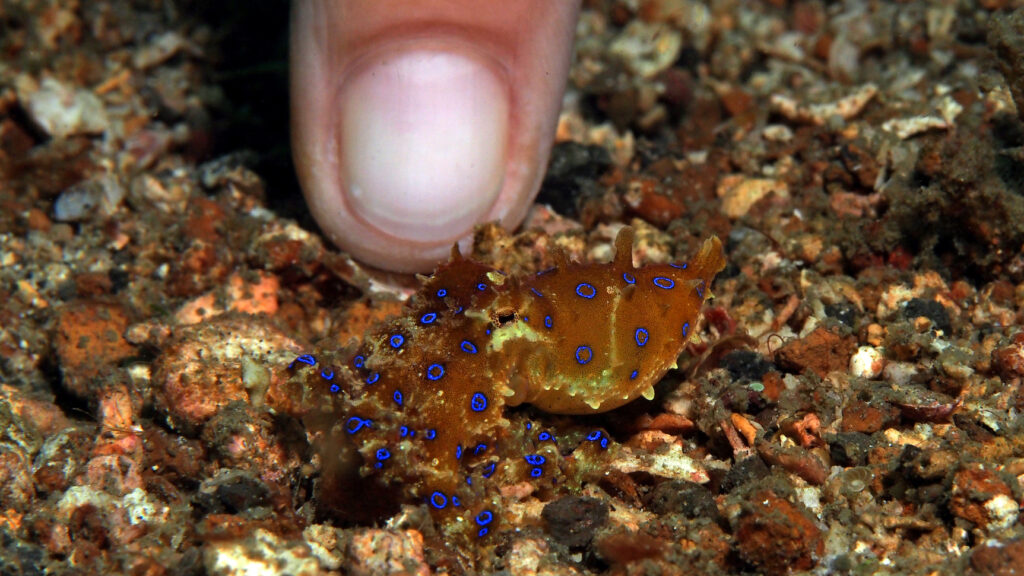
Don’t Fear, Revere!
Octopuses can bite humans, but they probably won’t unless they don’t have another choice. The best course of action is not to fear octopuses because they have the ability to bite but to be aware that these wild animals can and will defend themselves, so it’s best to respect them and their space. In a previous blog titled “Are Octopuses Dangerous” we discover how uncommon bites are by OctoNation’s founder.
After interviewing over a dozen aquarists at aquariums all over the world, OctoNation’s founder Warren Carlyle said “Giant pacific octopus bites are extremely rare! In all my interviews, I’ve only ever heard of it happening once– and the keeper said it was her mistake. This species seems to not waste any energy on biting things they aren’t going to eat, the chemoreceptors in octopuses brilliant suckers allow them to taste & smell objects in a “try-it-before-you-bite-it” fashion– and whelp, we simply aren’t tasty to them!
If you enjoyed this post, check out this one on 5 Blue-Ringed Octopus Facts That’ll Leave You Shook!
If you want to educate yourself some more about all sorts of different cephalopods, take a look at our encyclopedia. Or, what we call it, our Octopedia!
Connect with other octopus lovers via the OctoNation Facebook group, OctopusFanClub.com! Make sure to follow us on Facebook and Instagram to keep up to date with the conservation, education, and ongoing research of cephalopods.
✨Click here to Adopt an Octopus!✨
More FAQs To Read:
- What’s The Difference Between Cuttlefish vs. Octopus?
- Can An Octopus Regrow Its Arm?
- How Do Octopus Breathe?
- Which Direction Is The Front Of An Octopus?
- Is There Such Thing As A Freshwater Octopus?

Bethanie Hestermann is a freelance writer and author of animal-science books, including Zoology for Kids and Marine Science for Kids. She is a contributing writer for OctoNation! You can find all her books at www.zoologyforkids.com/books.
